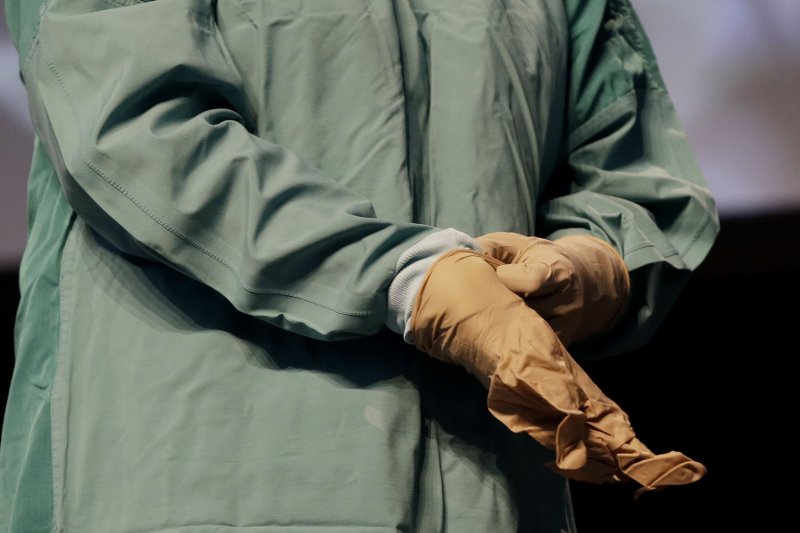Research suggests CDC and WHO guidelines on disposal of liquid waste from Ebola virus patients may not go far enough to protect sewer workers. John Angelillo/UPI |
License Photo
April 11 (UPI) -- In a new study, researchers question whether guidelines from the U.S. Centers for Disease Control and Prevention and the World Health Organization protect sewer workers from Ebola.
A study from Drexel University and the University of PIttsburgh suggest that guidelines issued by the CDC and WHO on the safe disposal of liquid waste from patients with the Ebola virus might not be effective enough to protect water treatment workers from being exposed to the virus.
Researchers report that sewer workers downstream of hospitals and treatment centers could contract Ebola by inhalation, a risk that the CDC and WHO do not currently account for in their guidelines and response protocol.
"During the 2014-16 Ebola outbreak we had our first case of Ebola treated in the U.S. and by the end 11 individuals had been treated here -- so this is certainly an area of risk assessment that we need to examine more closely," Charles Haas, professor at Drexel's College of Engineering and head of the Civil, Architectural and Environmental Engineering Department, said in a press release.
Original guidelines from the WHO during the Ebola outbreak said that liquid waste from Ebola patients could be disposed of through a sanitary sewer or pit latrine without any additional treatment. The WHO, however, issued more conservative guidelines a few months later to contain the waste in a holding tank before releasing it into the water treatment system. Neither of those guidelines accounted for risk to sewer workers.
"While current WHO and CDC guidance for disposal of liquid waste from patients undergoing treatment for Ebola virus disease at hospitals in the U.S. is to manage patient excreta as ordinary wastewater without pretreatment," study authors said. "The potential for Ebola virus transmission via liquid waste discharged into the wastewater environment is currently unknown. Possible worker inhalation exposure to Ebola virus-contaminated aerosols in the sewer continues to be a concern within the wastewater treatment community."
Researchers found that a worker's risk of exposure to Ebola varies with the amount of time spent in the contaminated area and if they were wearing properly fitting protective gear.
"Under the least-favorable scenario, the potential risk of developing Ebola virus disease from inhalation exposure is a value higher than many risk managers may be willing to accept," the authors said. "Although further data gathering efforts are necessary to improve the prevision of the risk projections, the results suggest that the potential risk that sewer workers face when operating in a wastewater collection system downstream from a hospital receiving Ebola patients warrants further attention and current authoritative guidance for Ebola virus liquid waste disposal may be insufficiently protective of sewer worker safety."
The study was published in Water Environment Research















